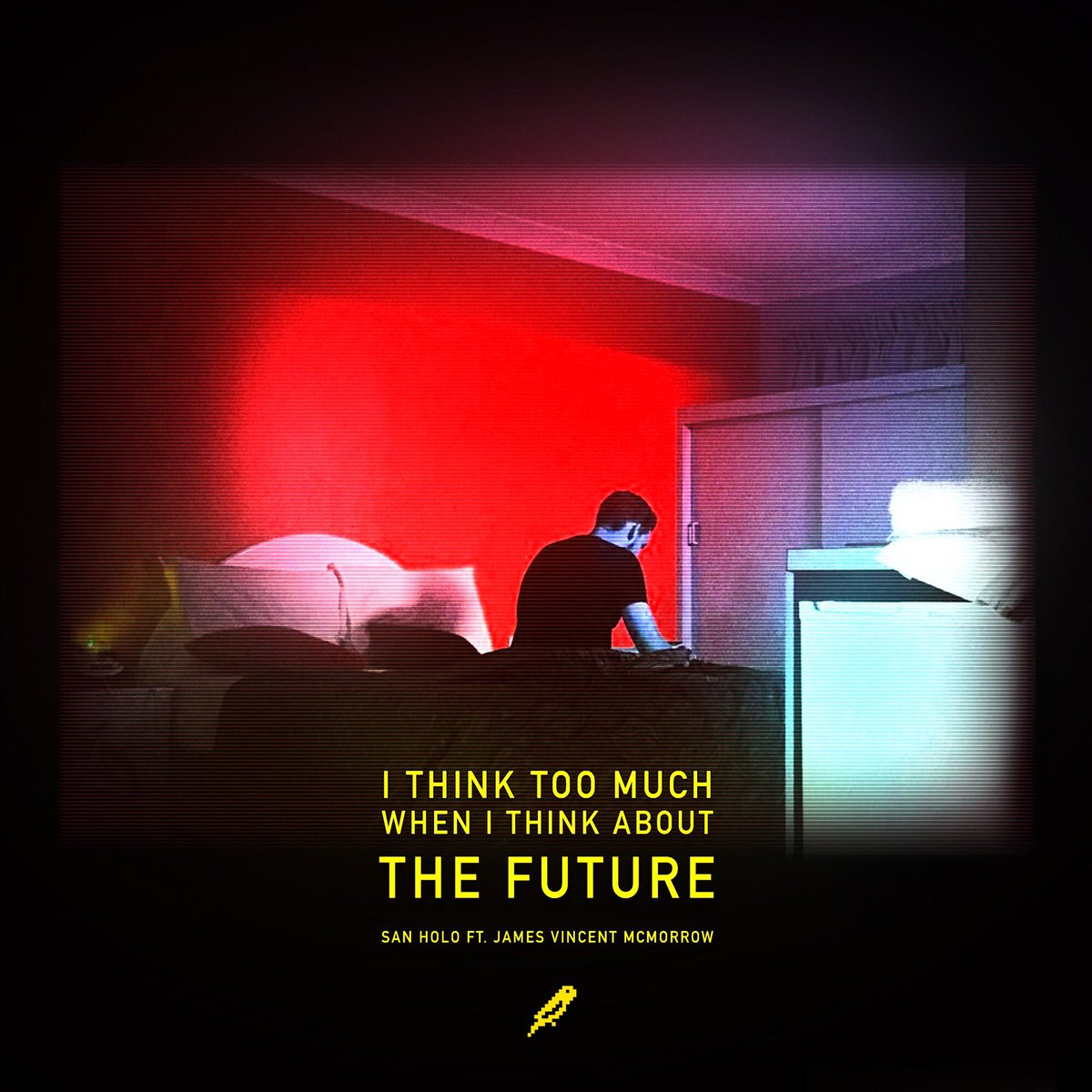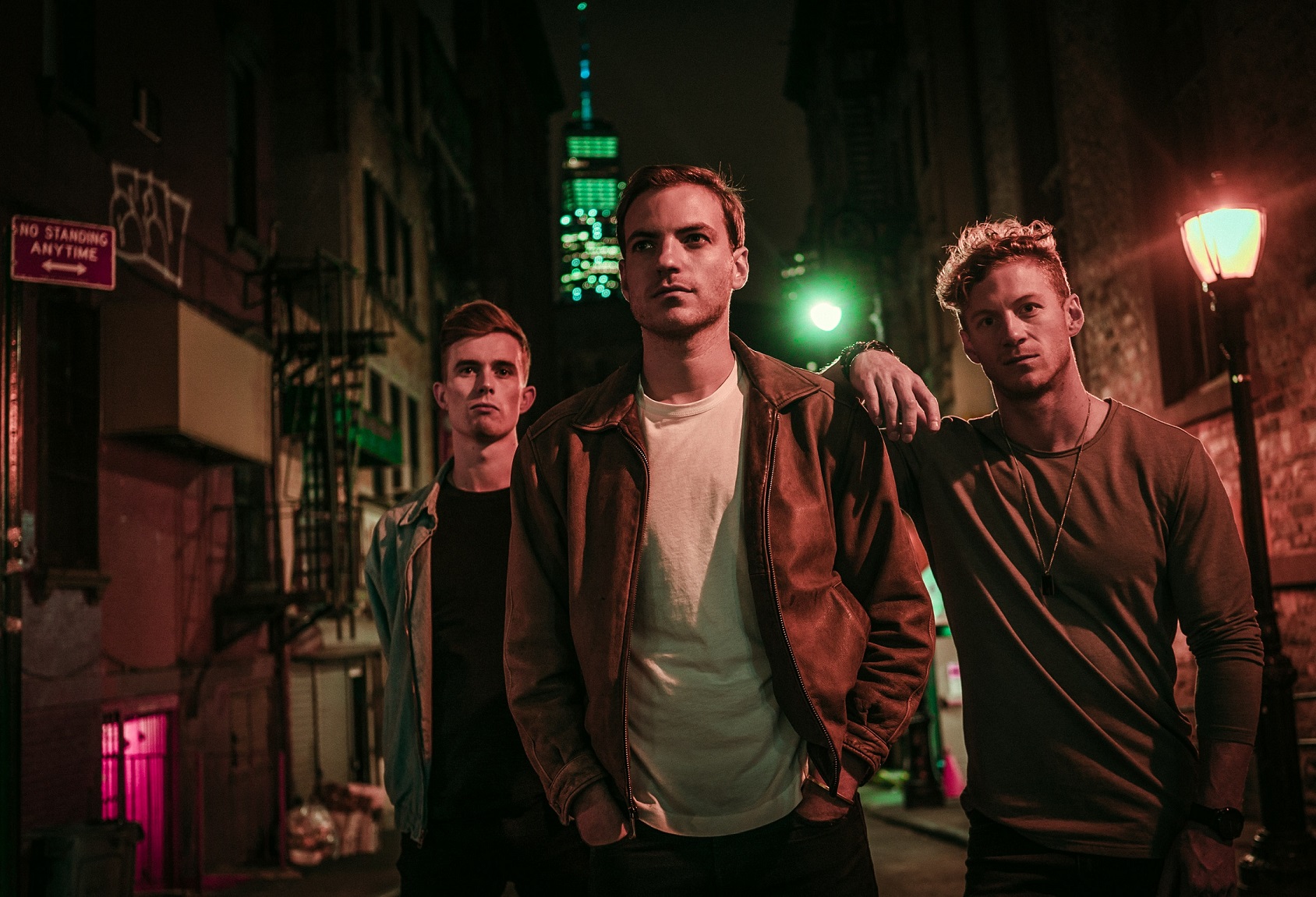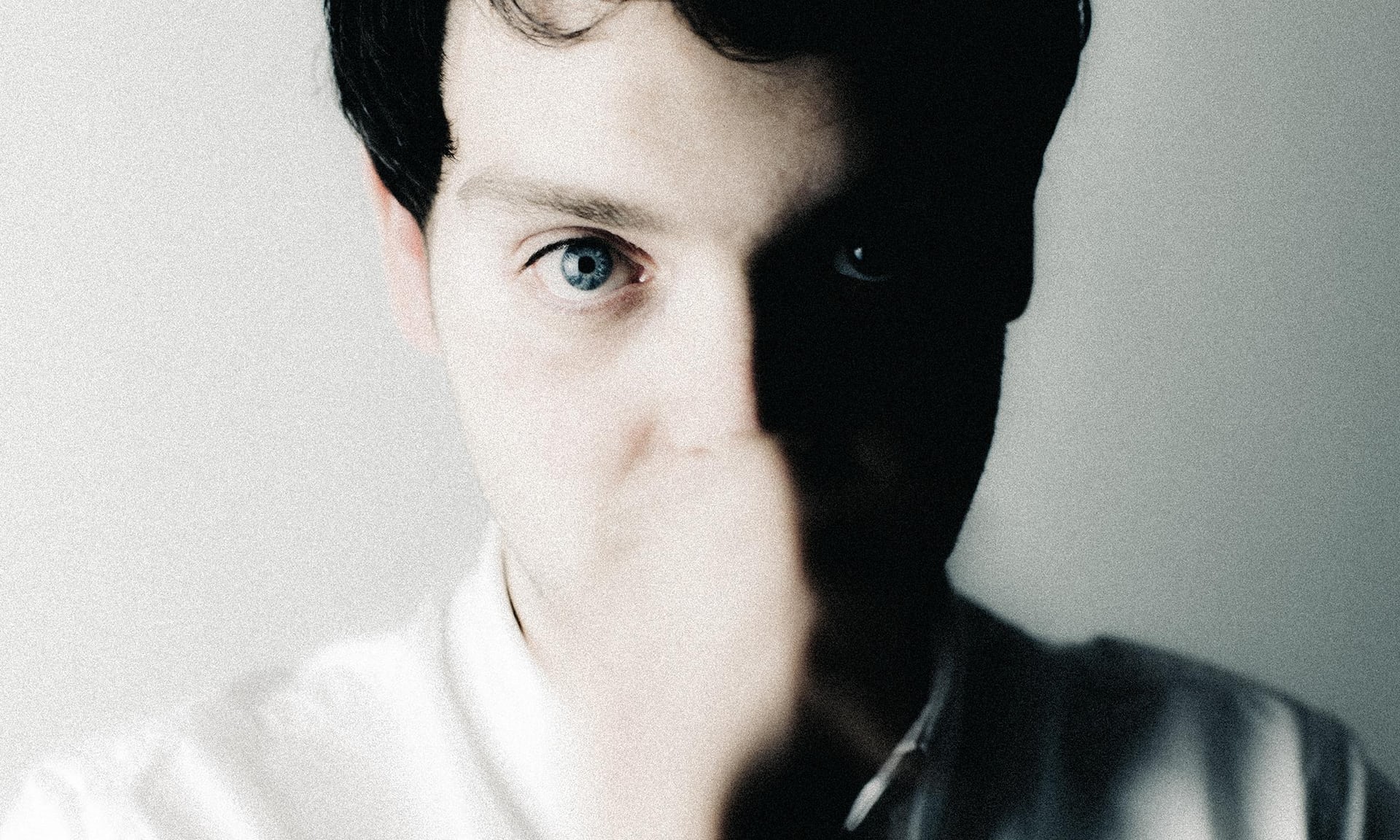Camden Welles’ music feels purposeful in both its creation and curation, offering an ingenuity that makes the band instantly likable.
— —
If you haven’t heard of Camden Welles, you actually may be surprised to learn that actually, you probably have. The three of the band’s four members — Andy Tongren [vocals], Steve Patrick [drums], and Julian Dimagiba [guitar] — are formerly of Young Rising Sons, a mid-2010s alt-rock gem that saw considerable success in its time. After a brief hiatus from music and a few cryptic social media posts, the band then reemerged as Camden Welles — still remaining mum about what, exactly, that entailed.
Then, the singles started coming, slowly but surely. Camden Welles were able to finally prove that it was all worth the hype, showing off a true pop sensibility that made each of their songs an absolute ear worm. Each song contained lucid lyricism, illustrating whole narratives within their three minutes. Camden Welles’ music feels purposeful in both its creation and curation, offering an ingenuity that makes the band instantly likable. This feels expressly true in the band’s most recent single, “Famous on the Internet,” which tackles living life in the modern age à la The 1975’s “Love It If We Made It.”
She wants to be famous on the Internet
His friends are all culturally relevant
Gets high on likes and percocets
Hashtag “Not My President”
DM for Chanel e-cigarettes
AR-15 for self-defense
I’m sleeping in the car ’cause I’m too depressed
She wants to famous on the Internet
– “Famous on the Internet”
Camden Welles have tapped into the heart of the human experience with their music, allowing listeners to connect to each song in their own way. The band utilizes music as the universal language that it is, benefitting from their inherent knack for percipience. “I think like, [being] understood is the biggest thing,” singer Andy Tongren notes while chatting with Atwood recently. “[…] And, I don’t know, I think music is really like — this sort of is cliche, but it’s sort of like a universal language. And I think it speaks in ways that, you know, a sit-down conversation can’t.”
Stream Camden Welles:
:: A CONVERSATION WITH CAMDEN WELLES ::
Atwood Magazine: I really love all of the new stuff. All of the new stuff has been a lot lyrically more like personal, and has more like specific storylines. Can you tell me a little bit more about that process?
Andy Tongren: I don’t know, I like — I love pop songs. I love, like, a good, just kind of basic pop song, and I think it takes a lot to write those. Because like, there’s a reason that they’re called pop songs; they are popular. But I don’t know, I get a little bored with them sometimes. And I think that the topic of, you know, our phones or computers, and us being so attached, and being unable to detach from them, I think it’s — I certainly have felt that way over the last few years, and social media in particular has like, kind of driven me crazy in a way. And I think a lot of people can probably relate to that. So that’s sort of been one of the central topics of the new project and how it affects me personally, and like, us in our relationships.
Steve Patrick: Yeah, like all different types of very problematic relationships, personal relationships, familial relationships, all that stuff. It’s like, how many times have you hung out with your family and you’re just like, staring at Instagram. And you’re like, “Why are we even in the same room right now?” I don’t know. I think Andy really wanted to explore that and I was like, “Fuck yeah.” But when he actually said it to me, and I was like, looking at Instagram and I was like, “Yeah, cool dude,” that’s literally the epitome of this.
Yeah, for sure. And I feel like songs like “Famous on the Internet” are super important now. Like I got strong 1975 “Love It If We Made It,” sort of vibes, like, “Morning in America” by John Bellion-type stuff.
Andy: Yeah, there’s something about like the immediacy of like, cultural references and modern songs. I think people — I don’t know, they hold onto things that they recognize and know; it shows them something to grasp onto.
Yeah, like a very specific lyric, literally so specific that they're like, “I know exactly what that means!”
Andy: Yeah, I hope so.
Steve: In today’s world especially, it’s like very — like, a lot of things that that “Famous on the Internet” talks about, or kind of glances over even, like, as satirical and ironic as it is at certain moments, there are really important things too that are going on. People are gonna hear it and be like, “Oh yeah, this is a thing.”
Hashtag Not My President.
Andy: It’s kind of funny; the way we wanted it to read, basically, was scrolling through an Instagram feed. And you know, you have like, your friend that gets hacked and they get like the Ray Ban ads for like a deal. Next, it’s like an Alt-right, gun nut.
Steve: It’s just kind of like, yeah, when you’re in it, and you’re scrolling through and you’re getting absolutely inundated with information that is like, all different viewpoints on everything; we’re not supposed to process that.
Listen: “Famous on the Internet” – Camden Welles
https://www.youtube.com/watch?v=IqvtTmnZ6nk
Right. And, and this is a newer project; obviously have Young Rising Sons as well. What made you want to shift from that to this? And what sort of differences do you want to establish as well?
Andy: So, I think going on lyrical content, like we were just talking about, I think there were a lot of issues that we didn’t really tackle with Young Rising Sons because they were considered like a little taboo in that, like, world that we were kind of in, and we didn’t really like that. I don’t know. I don’t really like censorship.
Steve: It was frustrating because, like, if we tried to do something like that, people would basically just be like, “Stay in your lane.”
Andy: Yeah, it was a lot of no-men, for lack of a better word. And with the new project, the creative process has been very open, and it’s allowed us to just feel more creative and have a little bit more fun and like, writing this song [“FOTI”], I can’t remember the last time — I had so much fun. I was like, I dare myself to fit Drake memes into this song.
Absolutely. And it works.
Steve: Andy sent me like, a page of lyrics. And I was like, “This is fucking crazy.”
Like word vomit, but it makes sense.
Steve: Oh, one hundred percent.
Yeah. So do you feel like this has been a way more freeing project?
Andy: Yeah, I think so. And we’re like, we’re still learning what works and what doesn’t work. But yeah, it’s been very freeing. And I don’t know, with Young Rising Sons, there’s a lot of baggage, for lack of a better word there. And then when we started writing new songs, they just felt different.
Do you think that that also has to do with how the music industry has changed since you guys first started, especially over the last few years?
Andy: Absolutely, I think so. I think we, as Young Rising Sons, kind of got in on like the last wave of that era of the music industry a little bit.
The death of indie.
Andy: Yeah, and now like alternative, it’s just like, no one knows what it is.
Steve: It’s wide open.
Andy: Which is kind of cool, in a way.
Steve: And terrifying.
Andy: I think it allows artists to just like, write, and be a little bit more free.
Steve: And I also think we started doing Young Rising Sons when we were young, and we were just writing because we just love to create and we were like doing that and then we kind of got — like, a song did well and we’re like, “Oh, shit, okay,” just kind of reacting. And this time around, we were like, let’s just build something; we have the experience, we have the know-how, and we just really wanted to make something that felt like, just very authentic to us, and create something that was an entire world instead of just being like, “Alright, let’s go.” And not that Young Rising Sons didn’t mean something to us, and we didn’t put a lot of thought into it, but like, we actually have the time this time around to sit down and be like, “We’re gonna make this, and everything has a reason, and everything has a purpose.”
Andy: There are also a lot fewer hands in the pot creatively, it’s really just us, which feels good. It’s scary, but it’s good.
Yeah, of course. And do you think the idea of like, a genre sort of doesn't exist anymore at all? Or -- I mean, obviously, I think like, country still exists. But at this level?
Andy: Yeah, those borders and those lines are just so blurred at this point, I think. And I think like streaming services like Spotify and Apple Music, have kind of helped to do that in like a cool way.
Steve: Yeah, I think they also discovered like, the more things became like algorithm-based, I think companies like Spotify and Apple Music kind of probably realized like, oh, people don’t really give a shit about genres as much as everyone thinks. And it kind of created this kind of thing — listen to like, Billie Eilish’s album, it’s like, it’s pop, but it’s not pop; it’s very anti-pop at the same time. I don’t know, you see a lot of stuff like that, where you’re crossing all of these different genres and every song could be drastically different. It doesn’t matter anymore. I think it’s really cool.
Andy: It’s funny. I do think like, still with radio, people like to put things in a box because it’s comfortable, and it gives us boundaries, I think. But that certainly still happens but, I don’t know, it’s more like, opened up.
Steve: It’s like the wild west.
…as long as people are connecting with what we’re saying and we can have an impact on them, and they care, it’s good.
So has the reception to the newer stuff been good, or have you carried over all of your same fans, or not really?
Andy: Yes and no. The like, wind down for Young Rising Sun was kind of like a slow decline, I guess. So, I don’t know. I think that people who really did like, love the band and love us as people are like here for the ride. But there were certainly some people that were like, “What the fuck is going on?” Like, I get it.
Steve: I mean, it meant a lot to a lot of people, obviously, and this is like a different thing. But we also that’s kind of why we left it. Like, we were like, cool, that’s just gonna be what it is. And like, it could still mean everything to everyone. And we’re very proud of it. But now this is like, the next step. And we did see some people push back. Most people are like, “Oh, whoa, this is really cool,” and I think they felt — until we released the music, I think they were like, “What the fuck, you guys?” And then the music came out. They’re like, “Oh, this is great. I like this.” It worked out nicely in that sense.
Do you feel like your idea of success has changed? Like what you once believed to be like, the pinnacle of success?
Steve: That’s such a good question. Yeah.
Andy: Yeah. I don’t know, in an ideal world, of course, like we’ve always wanted to be like the biggest band in the world. But like, I don’t know, as long as people are connecting with what we’re saying and we can have an impact on them, and they care, it’s good.
Steve: I think our endgame is just happiness. Like, we want to be happy and comfortable creating and being ourselves, and we want the people who connect with it to also feel good and happy.
Andy: I think like, [being] understood is the biggest thing. Especially like kids, just in general in all of eternity, I feel like they’ve generally felt pretty misunderstood. And, I don’t know, I think music is really like — this sort of is cliche, but it’s sort of like a universal language. And I think it speaks in ways that, you know, a sit-down conversation can’t. So I think it’s good.
Steve: Cliches come from a real place.
It does matter! So what do you want people to have as their ultimate takeaway from Camden?
Andy: Um, I think again, to just like, feel understood and personally addressed. I think the best music is the music that makes people feel understood. Like, it’s almost not strictly conversational, but, I don’t know, I think the songs that have impacted me most are the ones that I hear, and I’m like, “Holy shit, like this is literally my life right now this moment.” And I think those stick with you, and you hear them years later and you remember, like, a specific moment you were in when you first heard it. I think that’s a pretty cool feeling to have.
Steve: We wanted to kind of bleed into the culture of like, our fan base and people and have them — I don’t know, it’s songs that you relate to on like, a micro scale where there’s like a single sentence and you’re like, “Oh my god, yes, this is me,” and then kind of bleed over to everything else too. Or I think it’s like, I don’t know, the songs become soundtracks to select important moments in their lives, stuff like that. We just want people to feel welcome and united in just this little realm that we’ve created ourselves. So, you know, it’s fun.
So what is next, now? The latest single is out and then...
Andy: Yeah. So when we created this new project, we wrote for like, a year straight without telling anybody about it.
Steve: Which was so difficult.
Andy: So we’ve got a pretty good wealth of music ready to go. But we’re continuing to write and whatnot, and we’ve got a lot kind of coming up. And we’re gonna just keep trying to play shows and get out there and put some music out.
Steve: Yeah, constantly putting up just like music content, stuff like that. I think one of the hard things — I think, there was so much dark art with YRS. There was — I don’t know, it was like, hard for us to kind of get everything out to our fans, and to the general public the way we wanted to, and now it’s like, we have control over this and we want to make sure it’s consistent, and there’s always stuff coming out that people can really consume and grab onto, because it’s the best way.
Andy: Yeah. Content and [releasing] music, it’s like the currency now. Everything is so disposable that if you’re not active for a week, you’re forgotten. Which is like, “Really?” But that’s just the way it is.
Steve: Yeah, so we want it to all be like the same caliber, so we’re really selective about what we choose when we create.
… It makes me happy to know that we’re not the only people feeling these things.
Have you been reworking stuff as you go as well? Like, you had something that you thought in the moment was like, perfect, but then you came back to it?
Andy: “Famous on the Internet” was sort of that. We had the concepts and the title, but like, we didn’t really know what it meant. We had it for like months and then I literally woke up one night at like 3am with the melody and the lyrics for the chorus like, drilled into my brain and I was like, “Huh, there it is.”
What makes you happy about making music, in this project or just anything just in general?
Andy: I think the most rewarding thing is the live show, and seeing people singing along and like connecting on that level. That’s always been the most special thing to me, and the shows that we’ve experienced with the new stuff, it’s incredible.
Steve: It’s really cool. I think it’s really cathartic. And it’s cool to have all these thoughts and feelings and putting them down into songs and like, getting them out there. And then having people be like, “Oh, yeah, I feel that too.” And it’s nice to kind of — it makes me happy to know that we’re not the only people feeling these things. And it’s not just like, Andy and I in a weird feedback loop, being like, “This is freaking me out,” or “This is a bummer,” it’s like, other people relate to it, and they’re like, “Oh, yeah, this is it. Me too.” And it kind of becomes this cool, universal thing.
Andy: Also, like 99% of the time when we’re writing songs, or I’m trying to write lyrics, it’s a nightmare, and I’m so self-critical and I hate myself. But the 1% that it isn’t, it’s just like, when you all get excited about something and you realize and think to yourself like, “Yeah, this is it; this is why we do it.” You get those little reminders of like, this is something that could be really special, so it’s definitely worth it 99%.
— — — —

Connect to Camden Welles on
Facebook, Twitter, Instagram
Discover new music on Atwood Magazine
? © Anthony Marcano 2020
:: Stream Camden Welles ::









